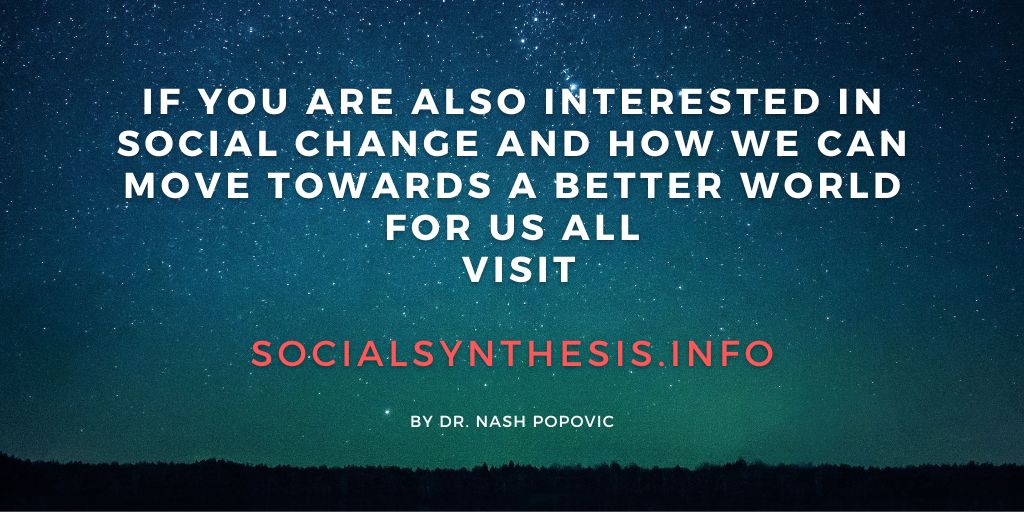Infinity and Wisdom
If the doors of perception were cleansed everything would appear to man as it is, infinite. For man has closed himself up, till he sees all things thro’ narrow chinks of his cavern.
William Blake (18c English poet and mystic)
This area is not in the model and is not its summary, but it overarches the model. You can benefit from it best after you complete going through the other areas. Infinity and wisdom are together as they are two sides of the same coin. Wisdom can be seen as the mastery of negotiating infinity.
Infinity
Here is the very last exercise suggested in these materials:
The above is not a publishing error. It is empty, which doesn’t mean that there is nothing there; the boundary is. This is not trivial. Whenever you go online, for example, you operate within the boundaries of your screen, even if you rarely think about it. Similarly, throughout this materials you focused on the text within it and most likely never paid attention to a boundary. Let’s look at that now. What do you think about it? Can you step outside and go beyond it? Welcome to infinity! Boundaries can help us open a window to infinity, but we can only really meet infinity when we step outside, into reality. Reality is infinite in so many ways: go small, go big, go quality, go quantity, go possibilities – infinity everywhere. Being finite, maps, texts and images can never capture it fully. Wisdom means recognising both, infinity and our limits. We can keep pushing these limits and gain some territory, but there will still be infinity beyond the horizon. This is why wisdom is associated with being humble in the face of reality. That’s not to say though that we cannot dance with infinity.
Dancing with infinity
These are some general suggestions that can help us develop that mastery of negotiating infinity:
- Listen to your body and mind, to others, to your surroundings; learning is infinite and we learn when we listen and observe.
- Take on complexity: to do so, simplify first till you get some clarity and then keep slowly expanding without losing it.
- Embrace uncertainty and the fact that things change. This means, in practice, taking your assumptions and conclusions as provisional, and always being open to putting them to the test.
- Maintain a healthy buffer zone: even with a lot of knowledge and experience it is easy to get entangled in something. If you want to remain in charge, don’t let anything suck you in, including your troubles, successes, and the actions of others, as well as your own memories, thoughts, desires and emotions.
- Balance the seeming opposites. These are some prominent examples of what needs to be balanced: internal and external, being and doing, depth and surface, freedom and responsibility, immediate gratification and long-term goals, thinking and experience, preparing and hoping, solitude and sharing.
- Stay in the ‘Goldilocks range’: not too much, not too little, whatever you do and however you react. You can go furthest if take this principle on board. The Goldilocks range can vary from situation to situation though, so you may wonder how to know whether you are within it or not. When in doubt, just stop for a moment, ask yourself, and you will know. If you realise that you are outside or going in that direction, make sure that you stay on the track (by now, you should know how).
- Love: That’s it. Love. One of the greatest misconnections is that we can only love something. And yet, love does not need to have an object. You can just love. This is not to say that you have to love everything, only that you don’t need to limit your love to something. We don’t have to love rapists, murderers or crooks in order to open our love to life, the universe, infinity.
Besides these suggestions, it is worth considering in more detail the challenges and opportunities that infinity presents.
Infinite challenges
The more we develop, the greater challenges we seem to seek or be presented with. In other words, the more skilful we are, into deeper waters we tend to go; an ocean though is much bigger than any sailing boat. Obviously, wisdom in this case is knowing how far you can go and avoiding battles that you cannot win. But even if you don’t go very far, a big wave may come your way. We cannot always ‘prepare for the worst’ – if we try to prepare for every possibility, we would be preparing forever and not have time for anything else. Sometimes a perfect storm may happen, and the boat may have a rough time, however capable the captain is. Or, you may hit yet more uncharted territory of your own mind as it is, in some aspects, infinite too. No matter how skilled you are, there may be moments when you will not feel much in charge. You may feel overwhelmed or disappointed. It may seem that what you are striving for is actually moving further away, or that you are back to the beginning (as your self-awareness failed, for example). At these times, when doing your best really matters, the temptation to do one of the following may be strongest:
- Let a part of you (ego, emotions) take over: giving that part a label can make a difference. Just saying to yourself, ‘this is ego talking’ or ‘amygdala overworking now’, may be enough.
- Give in to inertia: all you have learned and know is pointless if you don’t remember to apply it when you need to and just react automatically. So, remember to remember.
- Do something stupid (e.g. send an explosive email or tweet, drink to oblivion): keep in mind that this will make things even worse tomorrow. If you feel that you can’t stop yourself, try at least to postpone such a temptation; do one constructive thing first, and after that see if you still have the same urge.
- Give up: if you don’t feel like even getting out of bed, check to see whether you do in fact need a break. If you think that it would be better to actually do something despite how you feel, decide first if it is going to be an internal shift or an external action. Then, take one step at a time: small changes make a big, long-term difference.
Infinite opportunities
Wisdom is not only about recognising limits, but using them and creating new ones to open more doors to infinity. This may seem like a contradiction, but it is not. Let’s take a chess game as an example. If there were no limits as to what each piece could do, the game would be short and simple. There are a nearly infinite number of possible games of chess not despite, but because of, these limits (the chess rules). The telescope or microscope is another example. They impose limits as to what you can see in some ways, in order to enable you to go deeper. The same applies to our everyday life. If you chase practically infinite possibilities (of professions, partners, or other choices) you could be superficial at best, and still not get very far in covering the ground. This is not to say that limits always open doors to infinity. What makes the difference is you – your limits will be just limiting if you exclude infinity. If you believe that chess is the only game that can be played or that its rules are the only valid ones, you are shutting many other doors to infinity. To avoid this, keep in mind the larger perspective. This will not only help you see things in context, but also recognise multiple possibilities. And finally,don’t let inertia take over your life. The more you grow, the more opportunities will present themselves. In summary, use limits and boundaries to explore one dimension of infinity, maintain a larger perspective to explore the other, and keep growing to further the third. Taking the above on board is wisdom; playing with it is the joy of living. To what extent and in what directions you will go is your choice.
Beyond personal development
In relation to personal development it is wiser to strive for an optimum rather than perfection. When you get to that optimal point though, this is not the end of the story. The final stage of development is the transcendent one (going beyond yourself), not the individual one. So you can carry on by contributing to the world and its development. In what way you will do this is up to you. When you reach an optimum there, you can come back to improving yourself further. And so on to infinity. We meet there.

